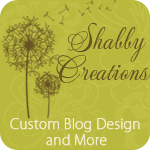Our local Orange County Harp Troupe was formed several years
ago. It all started when a student new to the area wanted a join harp circle, since she had enjoyed one at her previous home. I held a tea in my home and invited anyone locally who might be interested in forming a group to come. It was after a local harp
concert, so there was a large group of interested people to draw from. Regular meetings began shortly thereafter. We have had
an amazing 15 years and are still growing strong. We have played for churches, hospitals, nursing and
retirement homes, veterans groups, and Irish
and Scottish fairs to name a few. We
have also had Christmas parties, end of the year pot lucks, sponsored workshops
and concerts, and even took a cruise with a presenter! The opportunities are only as limited as your
groups collective imagination.
HELPFUL HINTS learned along the way:
Start by laying a good foundation for your meetings. You will need to select a board – at least President, Vice
President, Treasurer and Secretary to run the meetings and help determine the direction of the group – frequency of meetings, music, events to perform, etc. There should be time either at the beginning
or the end of each rehearsal for a general meeting for voting and discussion. Ahead of time usually works
well. This cuts down on chatter during your
rehearsal and there is always time during refreshments afterwards to toss around ideas.
At the designated meeting start time, everyone should be setup, tuned,
and ready to play. Have a tuner that
picks up the vibrations of your own harp only.
It takes some longer than others for setting up and they should plan accordingly. Try to start on time and don’t wait for
latecomers. There will always be some!
During your meeting allow time after each piece for discussion - tempo, tough parts, repeats. Remember to have a pencil handy to mark your music so your memory doesn't have to work overtime! Designate one person to count two bars at the beginning to start everyone off. During rehearsals, a loud ticking metronome is helpful too, to keep the tempo even.
For performances, strive to look like a professional group. Position yourselves in close proximity to each other, so you can see and hear each other. If the venue allows, a semi-circle is best. Learning to listen to others and playing together is a real skill! Practice pulling your harps to your shoulders at the same time, as well as muffling at the end of each piece, and standing your harps back up in unison. Also practice bowing - the audience will be clapping! For a cohesive look at performances, wear coordinated colors; or try matching accessories, such as a scarf, to unify the look of your group.










